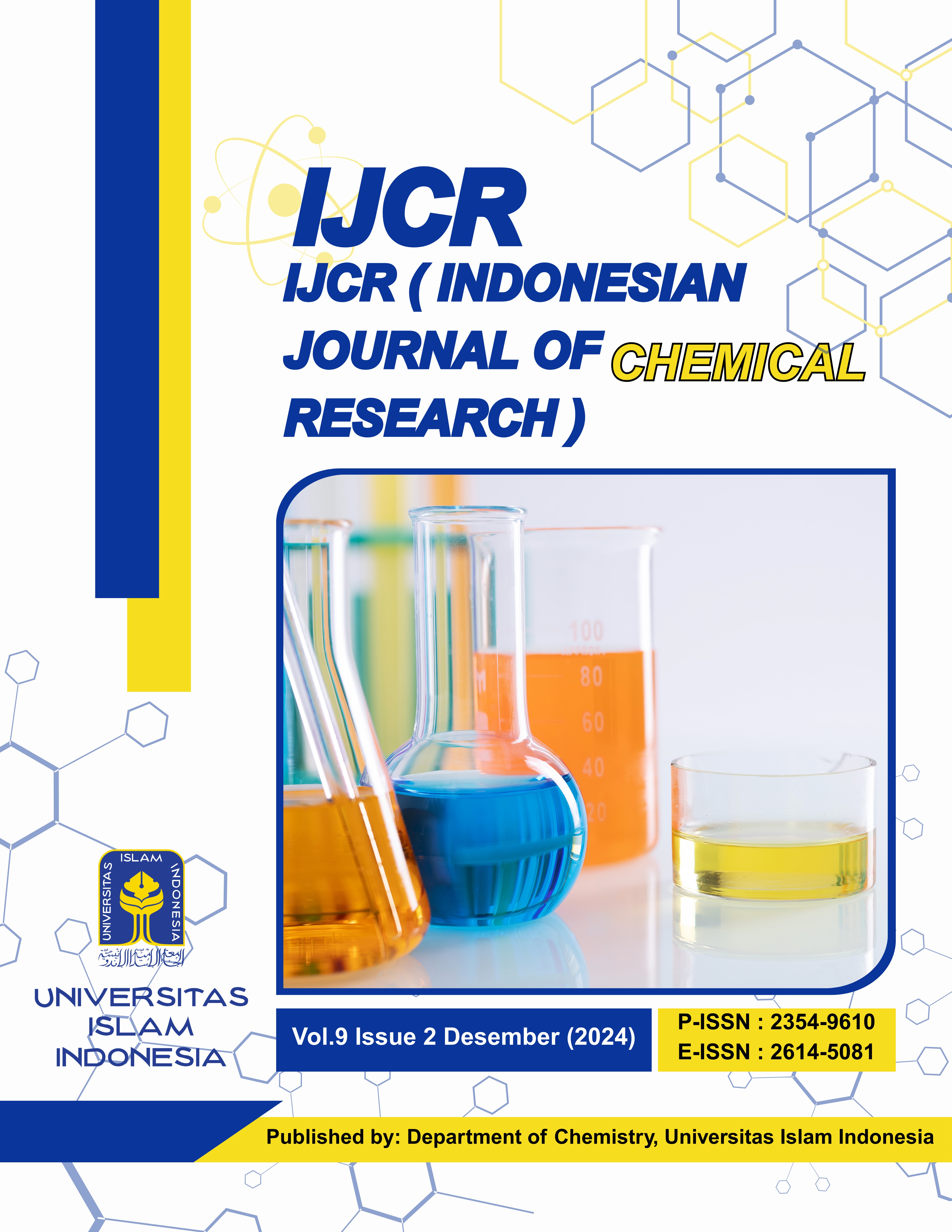Main Article Content
Abstract
The decline in water quality is caused by increasing human activities. Likewise, human activities around the Belahan Rejo Hamlet lake affect water quality and can potentially reduce the quality of the lake water itself. This research was conducted to determine the levels of Hexavalent Chromium (Cr (VI)) and Phenol from the water of Belahan Rejo Hamlet Lake as monitoring and supervision to determine the condition of water quality. Analysis of Hexavalent Chromium (Cr (VI)) levels was carried out using UV-Vis Spectrophotometry referring to the SNI 6989.71: 2009 method and obtained an average value of 0.0148 mg/L, while Phenol levels were carried out using the HACH DR1900 Portable Vis Spectrophotometer referring to the DOC 316.53.01108 method and obtained a result of 0.018 mg/L. Based on the quality standards stipulated in Government Regulation of the Republic of Indonesia Number 22 of 2021 concerning the Implementation of Environmental Protection and Management, Appendix VI concerning the quality standards for Lake Water and the like, class 4, the quality standard for the Hexavalent Chromium (Cr (VI)) parameter is 1 mg/L and for the Phenol parameter is 0.02 mg/L. The levels of Hexavalent Chromium (Cr (VI)) and Phenol from this test are below the standard water quality limits, meaning that the lake water can still be used to irrigate crops and/or for other purposes that require the same water quality as these uses.
Article Details
Authors who publish with this journal agree to the following terms:
- Authors retain copyright and grant the journal right of first publication with the work simultaneously licensed under a Creative Commons Attribution License that allows others to share the work with an acknowledgment of the work's authorship and initial publication in this journal.
- Authors are able to enter into separate, additional contractual arrangements for the non-exclusive distribution of the journal's published version of the work (e.g., post it to an institutional repository or publish it in a book), with an acknowledgment of its initial publication in this journal.
- Authors are permitted and encouraged to post their work online (e.g., in institutional repositories or on their website) prior to and during the submission process, as it can lead to productive exchanges, as well as earlier and greater citation of published work (See The Effect of Open Access).
